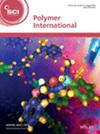Isabela de Andrade Arruda Fernandes, Ana Paula Pereira de Oliveira, Fatima de Jesus Bassetti, Juliana Regina Kloss, Lucila Adriani de Almeida Coral
求助PDF
{"title":"Bio-based polyurethanes: a comprehensive review on advances in synthesis and functionalization","authors":"Isabela de Andrade Arruda Fernandes, Ana Paula Pereira de Oliveira, Fatima de Jesus Bassetti, Juliana Regina Kloss, Lucila Adriani de Almeida Coral","doi":"10.1002/pi.70010","DOIUrl":null,"url":null,"abstract":"<p>The materials commonly used to produce polyurethane foam (PUF) are based on petrochemical derivatives, which can pose long-term environmental and human health risks. Therefore, the search for alternatives to replace these petrochemical derivatives has grown substantially in the last 20 years, aiming mainly at improving polymer properties and leading to a reduced environmental impact. Thus, this review focuses on the advances presented in the literature on PUF production strategies from alternative sources and their impact on polymer material properties, discussing the environmental and technical advantages of using bio-polyols in polyurethane synthesis. From an analysis of the metrics available in the Web of Science and Scopus databases, it was observed that in the last 17 years, 1012 articles and 979 patents were published on bio-based PUFs, mainly in materials sciences, polymeric materials and chemistry. Among these alternative sources used to obtain polyols, castor and soybean vegetable oils are the matrices that stand out the most in current studies. It is concluded that replacing petrochemical polyols with biological sources in the production of PUF allows industrial practices to be aligned with sustainability principles, representing a significant step towards developing cleaner and more efficient technologies. © 2025 Society of Chemical Industry.</p>","PeriodicalId":20404,"journal":{"name":"Polymer International","volume":"74 11","pages":"941-957"},"PeriodicalIF":3.6000,"publicationDate":"2025-07-14","publicationTypes":"Journal Article","fieldsOfStudy":null,"isOpenAccess":false,"openAccessPdf":"","citationCount":"0","resultStr":null,"platform":"Semanticscholar","paperid":null,"PeriodicalName":"Polymer International","FirstCategoryId":"92","ListUrlMain":"https://scijournals.onlinelibrary.wiley.com/doi/10.1002/pi.70010","RegionNum":4,"RegionCategory":"化学","ArticlePicture":[],"TitleCN":null,"AbstractTextCN":null,"PMCID":null,"EPubDate":"","PubModel":"","JCR":"Q2","JCRName":"POLYMER SCIENCE","Score":null,"Total":0}
引用次数: 0
引用
批量引用
Abstract
The materials commonly used to produce polyurethane foam (PUF) are based on petrochemical derivatives, which can pose long-term environmental and human health risks. Therefore, the search for alternatives to replace these petrochemical derivatives has grown substantially in the last 20 years, aiming mainly at improving polymer properties and leading to a reduced environmental impact. Thus, this review focuses on the advances presented in the literature on PUF production strategies from alternative sources and their impact on polymer material properties, discussing the environmental and technical advantages of using bio-polyols in polyurethane synthesis. From an analysis of the metrics available in the Web of Science and Scopus databases, it was observed that in the last 17 years, 1012 articles and 979 patents were published on bio-based PUFs, mainly in materials sciences, polymeric materials and chemistry. Among these alternative sources used to obtain polyols, castor and soybean vegetable oils are the matrices that stand out the most in current studies. It is concluded that replacing petrochemical polyols with biological sources in the production of PUF allows industrial practices to be aligned with sustainability principles, representing a significant step towards developing cleaner and more efficient technologies. © 2025 Society of Chemical Industry.
生物基聚氨酯:合成和功能化研究进展综述
生产聚氨酯泡沫塑料(PUF)的常用材料是基于石化衍生物的,可能对环境和人体健康造成长期风险。因此,在过去的20年里,寻找替代这些石化衍生物的替代品已经大大增加,主要目的是改善聚合物的性能,减少对环境的影响。因此,本文将重点介绍生物多元醇在聚氨酯合成中的环境和技术优势,以及生物多元醇在聚氨酯合成中的替代来源及其对聚合物材料性能的影响。通过对Web of Science和Scopus数据库中可用指标的分析,我们发现在过去的17年中,生物基puf发表了1012篇文章和979项专利,主要集中在材料科学、高分子材料和化学领域。在这些用于获得多元醇的替代来源中,蓖麻油和大豆油是目前研究中最突出的基质。结论是,在PUF生产中用生物源代替石化多元醇使工业实践符合可持续性原则,这是朝着发展更清洁和更有效的技术迈出的重要一步。©2025化学工业协会。
本文章由计算机程序翻译,如有差异,请以英文原文为准。


 求助内容:
求助内容: 应助结果提醒方式:
应助结果提醒方式:


